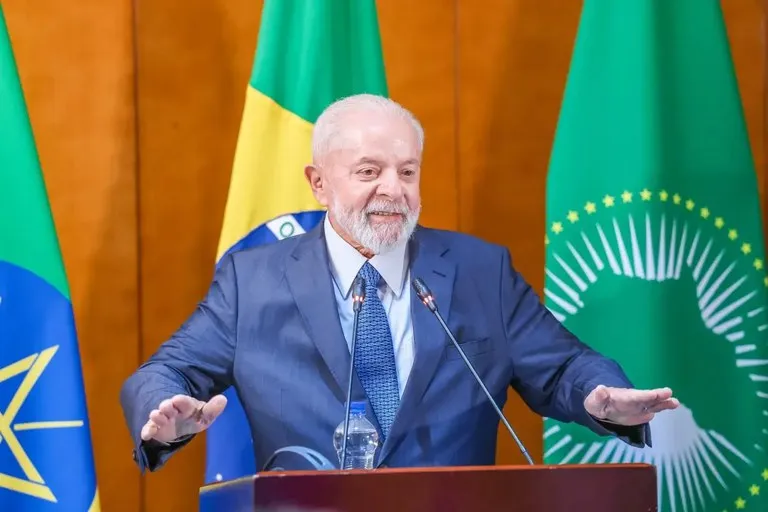Brazilian President Luiz Inácio Lula da Silva gave voice on Feb. 18 to what the tens of millions of people taking to the streets in the West are thinking, whether they are protesting the genocide in Gaza, or the economic policies which are killing them, when he warned that “either political leaders change their behavior towards human beings, or human beings will end up changing the political class.”
Lula gave reporters an earful after attending the African Union summit in Addis Ababa, Ethiopia, which he had addressed in his capacity as this year’s G20 chairman. He announced that a major issue on the agenda of the G20 summit this year will be whether the IMF and World Bank will finance development in the poor countries, or continue “to suffocate development.” He proposed that part of Africa’s unpayable foreign debt of some $860 billion should be transformed into productive assets, “so that this money, instead of going back to the institution that lent it, goes back into building a railroad, a highway, a hydroelectric plant, a thermoelectric plant; in other words, into something that means development for the continent, that goes back into education, into a university, a research institute.” Africa, he insisted, must be understood as “an extraordinary area for the future of the world.”
Asked why his government intends to increase its funding for the UN’s primary Palestine humanitarian aid agency, UNRWA, when other countries are cutting their aid, he unleashed:
“When I see the rich world announcing that it is stopping its humanitarian aid to the Palestinians, I wonder how politically aware these people are? How big is their heart of solidarity, that they can’t see that Gaza is not a war, but a genocide! Because it’s not a war between soldiers and soldiers. It’s a war between a highly prepared army, and women and children.”
If someone in UNRWA committed wrong, “punish those who did wrong, but don’t suspend humanitarian aid to a people who have been trying for decades to build their state,” he said with passion.
He compared what is happening in the Gaza Strip to the Palestinian people to “when Hitler decided to kill the Jews,” and made the point, that without humanitarian aid: “Who is going to help build those houses that were destroyed? Who is going to restore the lives of the 30,000 people who have already died? 70,000 who are injured? Who is going to give back the lives of the children who died without knowing why they were dying? Is that not enough to stir the humanitarian sense of the world’s political leaders?
“Frankly, either political leaders change their behavior towards human beings, or human beings will end up changing the political class,” he concluded.




